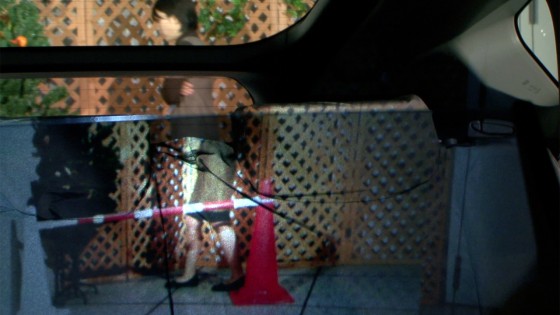
Robohub.org
Optical camouflage tech removes backseat of a car, transparent interior the goal

A system that makes the backseat of a car look transparent is currently being developed by a research group at Keio University.
The system applies optical camouflage technology, using recursive reflection, to vehicles. The technology was developed by Professor Masahiko Inami. This system has been optimized to make the backseat look transparent from the driver’s viewpoint.
“The main feature of our system is, it makes things look as if you can really see through them, rather than giving an indirect view of what’s behind. For example, with a system that shows things on a monitor, you can understand your car’s position and where any obstacles are. But the point about our system is, it gives a sense of depth, by making things appear where they actually should be when you look back.”
 In this system, video from the rear cameras is projected onto the backseat using a half-mirror. The video is processed by a computer to make things appear actual-sized, making the driver feel as if the back seat really is transparent.
In this system, video from the rear cameras is projected onto the backseat using a half-mirror. The video is processed by a computer to make things appear actual-sized, making the driver feel as if the back seat really is transparent.
“The screen is made of a special material called a recursive reflector. Optically, it has an interesting characteristic because it reflects light back in the direction of incidence. When we thought of applying it to automobiles, the advantage was, it gives a clear image in daylight, rather than in a dark place like this.”
Currently, only the backseat has been made transparent, but ultimately, the aim is to make the car’s interior completely transparent through 360 degrees, with no blind spots.
“Currently, the system shows one point clearly. But from now on, we’d like to keep increasing the number of viewpoints. We plan to enable the system to be easily used by anyone.”
“We’re discussing the possibility of collaboration with automakers. There are lots of issues in this research, so we’d like to collaborate with a variety of businesses. Regarding a commercial version, we hope we’ll be able to offer one in about five years.”
tags: c-Research-Innovation, Prototype





